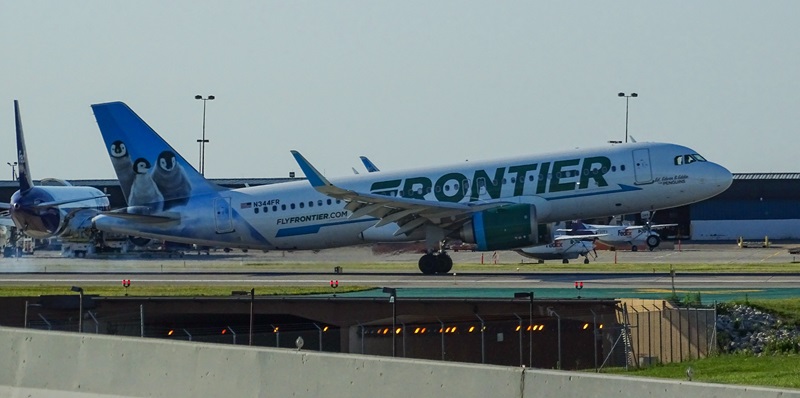Frontier Airlines, a major U.S. carrier, has agreed to a settlement with the U.S. Equal Employment Opportunity Commission (EEOC) and five pilots over allegations of pregnancy discrimination. The airline was accused of forcing pregnant and lactating pilots to take unpaid leave, denying reasonable accommodations, and restricting their ability to pump at work. This landmark settlement marks a significant victory for employee rights and sets a precedent for other employers, particularly those in the airline industry.
Settlement terms
As part of the settlement, Frontier Airlines has committed to implementing new pregnancy and lactation policies to ensure better working conditions for pilots. These policies include allowing pilots to pump in the cockpit during safe periods of flights, permitting pregnant pilots to continue flying with a valid medical certification, and establishing and regularly updating a list of lactation facilities available in airports. These reforms aim to support and empower pregnant and lactating pilots, recognizing their needs and ensuring their rights are protected.
Impact and Message to Employers
The significance of this settlement should not be underestimated, as it sends a strong message to employers across the board, especially those in the airline industry. The EEOC states that reasonable accommodations are not only beneficial for workers and families but also essential for business success. Furthermore, such accommodations are mandated by various laws, including Title VII of the Civil Rights Act of 1964, which prohibits sex discrimination, including pregnancy discrimination. By implementing these new policies, Frontier Airlines is setting an example and inspiring change within the airline industry.
Laws prohibiting pregnancy discrimination
Multiple laws aim to protect employees from pregnancy discrimination in the workplace. Title VII of the Civil Rights Act of 1964 is a key legislation in this regard, explicitly banning sex discrimination, which includes pregnancy discrimination. This law establishes a foundation for ensuring equal treatment and fair opportunities for pregnant employees.
Additionally, the Pregnant Workers Fairness Act is another important piece of legislation that requires employers to provide reasonable accommodations to workers for pregnancy, childbirth, and related conditions. This act emphasizes the importance of addressing the unique needs of pregnant employees and ensures that they are not subjected to unfair treatment.
Furthermore, the Americans with Disabilities Act (ADA) prohibits discrimination against candidates or employees with disabilities, including disabilities tied to pregnancy. This act serves to protect the rights of pregnant individuals who may require accommodations due to complications or conditions related to their pregnancy.
Other cases and revisions in policy
Frontier Airlines is not the first company to face criticism for its treatment of pregnant and lactating employees. In a notable case, Labcorp, a leading healthcare diagnostics company, revised its lactation policy after a U.S. Department of Labor investigation found that the company had failed to provide a private space for pumping. This investigation highlighted the importance of employers creating a supportive and accommodating environment for breastfeeding employees.
Additionally, Sun Country Airlines recently came under scrutiny when a breastfeeding employee alleged that the company forced her to pump in the baggage storage office, highlighting the need for heightened awareness and enforcement of policies to protect the rights of pregnant and lactating employees.
The settlement between Frontier Airlines and the EEOC represents a significant step forward in the fight against pregnancy discrimination. By adopting new policies and committing to better working conditions for pregnant and lactating pilots, Frontier Airlines is not only complying with the law but also demonstrating a commitment to the well-being of its employees.
This settlement should serve as a wake-up call to employers, urging them to uphold their legal obligations and create a supportive environment for expectant and breastfeeding workers. It is crucial that employers recognize the importance of reasonable accommodations, as they benefit both employees and businesses. This settlement has the potential to inspire further change within the airline industry, encouraging other companies to prioritize the needs and rights of pregnant employees.
As we move forward, it is vital that laws and regulations continue to be strengthened to protect workers from pregnancy discrimination. Pregnant individuals have the right to work in an environment that is safe, supportive, and accommodating, allowing them to balance their professional responsibilities with the journey of parenthood. By implementing and enforcing these protections, we can ensure a fair and equitable workplace for all.

